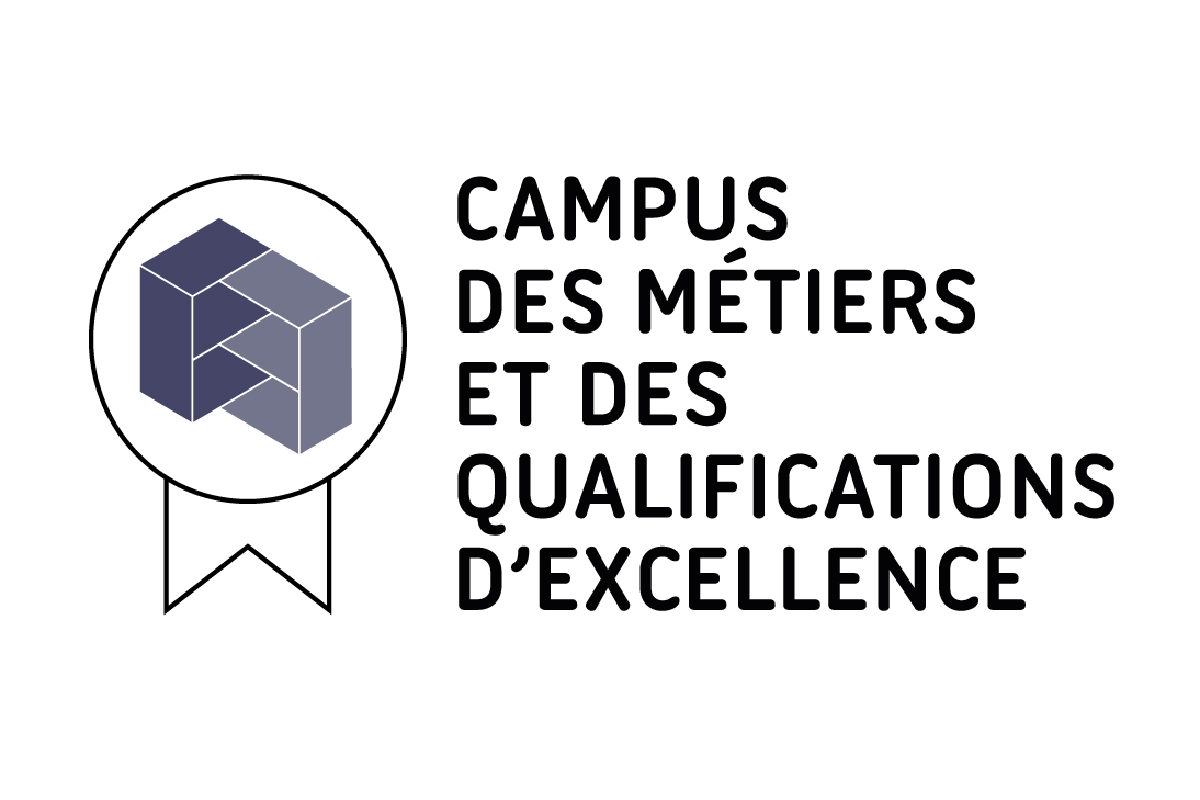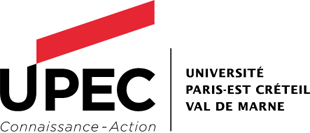- Download PDF
-
Partager cette page
- Download PDF
You are here :
- EN ›
- University ›
- Major projects
UPEC's technical qualifications campuses

UPEC's technical qualifications campuses, known as "Digital and Environmental Transition in Construction" and "Health, Autonomy and Ageing", have been awarded the "Campus d'excellence" label by five ministries. The "Health, Autonomy and Ageing" campus also won a call for projects under the Programme d'investissements d'avenir growth initiative.
On March 18, 2021, UPEC's "Digital and Environmental Transition in Construction" and "Health, Autonomy, Ageing" technical qualifications campuses were awarded the "Excellence" label jointly issued by the Minister of National Education, Youth and Sports, the Minister of the Economy, Finance and Economic Recovery, the Minister of Labor, Employment and Integration, and the Minister of Higher Education, Research and Innovation in France. They are among 40 awarded campuses of excellence nationwide.
The technical qualifications campuses–structured based on consortia of partners including companies, educational players, and researchers–play a role in driving the development of employment and innovation in strategic sectors, in line with the socioeconomic challenges of a given region. By obtaining this label, UPEC and its partners will be recognized for their shared commitment to information, training, and innovation in the economic sectors of the future. They will offer a range of standard, continuing education, and apprenticeship courses, from vocational training to PhDs, in close collaboration with companies, and will be places for the development of innovation and training in the skills and professions of tomorrow. The Excellence label, awarded for a three-year period, underlines the ambition of these campuses to focus on these strategic sectors on a regional scale.
UPEC has also won a call for projects from the Programme d'investissements d'avenir growth initiative for its "Health, Autonomy, Ageing" campus, and will receive funding of €4.6 million over 10 years. Managed by the Secretary-General for Investment and operated by Banque des Territoires, the fund is designed to give the most innovative technical qualifications campuses the means to consolidate their role as development drivers in meeting the needs for skills in a given sector of a given region.
The technical qualifications campuses–structured based on consortia of partners including companies, educational players, and researchers–play a role in driving the development of employment and innovation in strategic sectors, in line with the socioeconomic challenges of a given region. By obtaining this label, UPEC and its partners will be recognized for their shared commitment to information, training, and innovation in the economic sectors of the future. They will offer a range of standard, continuing education, and apprenticeship courses, from vocational training to PhDs, in close collaboration with companies, and will be places for the development of innovation and training in the skills and professions of tomorrow. The Excellence label, awarded for a three-year period, underlines the ambition of these campuses to focus on these strategic sectors on a regional scale.
UPEC has also won a call for projects from the Programme d'investissements d'avenir growth initiative for its "Health, Autonomy, Ageing" campus, and will receive funding of €4.6 million over 10 years. Managed by the Secretary-General for Investment and operated by Banque des Territoires, the fund is designed to give the most innovative technical qualifications campuses the means to consolidate their role as development drivers in meeting the needs for skills in a given sector of a given region.
UPEC's Digital and Environmental Transition in Construction Campus
The transformation of the construction industry and the implementation of the environmental and digital transition are crucial today and for the future. With more than 150 undergraduate and graduate degrees in the Paris region alone, this campus offers synergy between educational and corporate players in the construction sector, so that current and future professionals can acquire the skills needed for the environmental and digital transition. Bringing these players together will foster the emergence of innovations in a sector where the skill sets required are rapidly changing.The campus' strategy includes the development of shared digital tools, academic projects involving students with different levels of training and industry players, and the pooling of training activities on specialized technical platforms, particularly in the development of bio-sourced materials for the environmental transition. Initiatives will also be developed to support students' professional integration, boost their profiles on the world stage, and foster innovations in conjunction with research laboratories. By partnering with existing stakeholders, this will all contribute to enhancing the attractiveness of the sector and the training programs by extension. The campus fits perfectly with the consortium members' strategies for developing collaborative and innovative projects.
The Digital and Environmental Transition in Construction campus is a part of the international cluster for higher education and research on sustainable cities at Cité Descartes in Marne-la-Vallée. The campus itself will be based in Seine-et-Marne and will feature a digital platform for sharing information and educational content among the campus' partners, students, and trainers.
The campus is co-sponsored by a consortium comprising UPEC, the Paris region, the Académie de Créteil education authority, four vocational high schools in the Créteil area, BTP CFA Ile-de-France, corporate partners via the eastern Paris chapter of the French Construction Federation, and the Université Gustave Eiffel. Additional partners include CSTB, FCBA, Constructys, FIBOIS IDF, Ecole des Ponts ParisTech, and the Seine-et-Marne département.
UPEC's "Health, Autonomy, Ageing" Campus
As the population ages over the coming years, we can expect to see a rise in the number of people requiring long-term care. Preventing the need for long-term care and managing those in need have become a major challenge. It is therefore important to develop new professions and skills to meet these needs and keep pace with changes in the sector. This also means introducing new training methods. The Health, Autonomy, Ageing campus aims to meet these needs by offering training courses from the undergraduate to the postdoctoral levels in the health, social services, and gerontechnology sectors.The campus aims to create synergies among its stakeholders in order to make the related professions and training courses more attractive and open, support the development of innovative teaching methods, and promote the sharing of innovative best practices in this sector. It is supported by UPEC and a consortium of public sector partners (the Paris region, the Académie de Créteil education authority, five local high schools, and the Val-de-Marne and Seine-et-Marne départements), an international higher education and research institution (Holon Institute of Technology, Israel), and business and community partners (retirement homes, Groupe La Poste, Altran Technologies, the French Red Cross, and GCS Bien Vieillir Ile-de-France). The campus will aid in creating new innovative training programs, allowing students to easily enter the job market and work in new professions.
The campus will be housed in an innovative facility at the Center of Excellence for Employment, Training and Research currently being developed on the Chérioux estate in Vitry-sur-Seine.
Find out more about the technical qualifications campuses label
Created in 2013 through the French law on school reform, the "technical qualifications campuses" label identifies a network of players working together to develop a wide range of vocational, technological, and general training courses in a given area. The training courses, which can be at the secondary or tertiary level, and in the standard training or continuing education formats, are to be focused on specific sectors and on an area corresponding to a national or regional economic challenge.
- Download PDF
-
Partager cette page
- Download PDF

